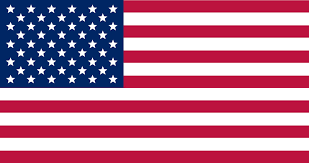The Gambella region, located in the southwestern part of Ethiopia, hosts the largest refugee population in the country, accounting for approximately 42% of all refugees. Currently, over 375,000 South Sudanese refugees reside in Gambella within seven camps. In this region, DCA Ethiopia implements various projects that combine humanitarian response with long-term resilience building and the promotion of peaceful coexistence.
One notable initiative is the Integrated Multi-Sectoral Humanitarian Response Project, which aims to improve food security and dietary diversity through electronic fresh food vouchers and cash support. It also enhances self-reliance and economic empowerment through activities such as backyard gardening, irrigation-based farming, goat husbandry, and small business startups. These initiatives engage both refugees and host communities in generating additional income while fostering market-based linkages that promote interdependence and social cohesion between the two groups.
The small business development activity engages small business owners who already have skills and ideas but need additional support to strengthen their business. Accordingly, selected programme participants are trained on business management skills tailored to their particular business. Upon the completion of the training, trainees are expected to develop their own business expansion plan. subsequently, start-up grants are provided in instalments following the gradual development of the business.
Here, you can meet three participants of the small business development initiative, each successfully managing their business.
Nyanhial’s Restaurant
Nyanhial Gach Nyuon, a 35-year-old South Sudanese refugee living in Kule Camp. She came to the camp in 2015, when conflict erupted in her village, forcing her family to flee for their lives.
“The war was devastating. We saw dead bodies everywhere. We had no choice but to leave everything behind,” she recalls.
Upon arriving at the camp, Nyanhial received monthly food rations from the World Food Program (WFP). However, as time went on, those rations became smaller and less sufficient for her growing family. Determined to provide for her children, she decided to leverage her small savings and start a coffee and tea business.
In March 2024, Nyanhial was selected by DCA to participate in its Small Business Development programme. She received training on basic business management skills such as creating a business plan, managing finances, marketing her products, and adopting environmentally friendly practices. With newfound knowledge and confidence, Nyanhial crafted a plan to expand her coffee and tea service into a full-fledged restaurant. She then received a start-up capital of 22,000 Birr (~$175), which served as a momentum for her expansion.
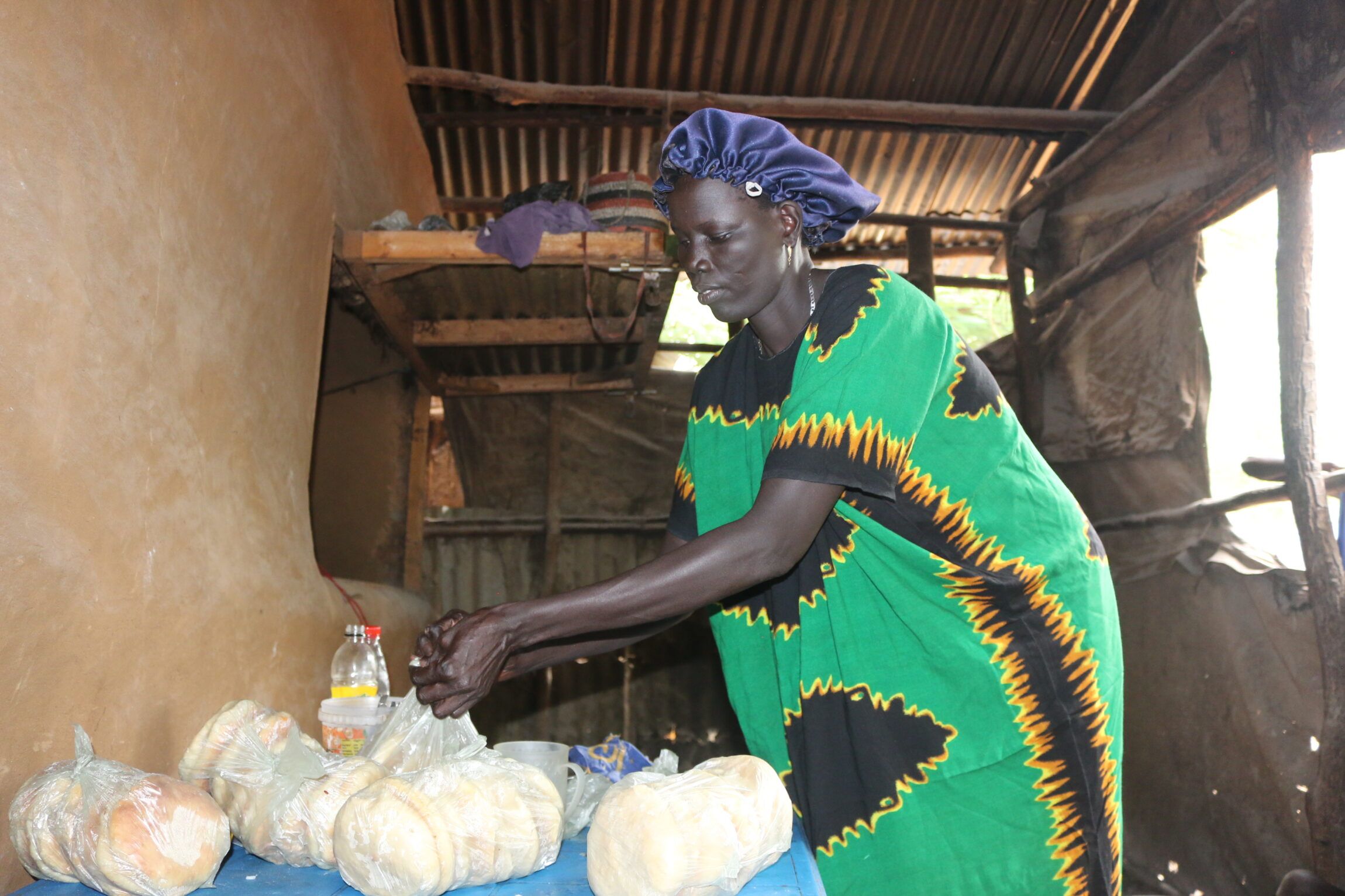

Her business has now flourished. Her menu features local favorites such as rice and bean stew (known as Ful), beef kebabs, and meat stew with bread. “She [Nyanhial] offers delicious food,” says one of her customers.
“On average, I make a profit of 8,000 Birr (~$65) a month after covering all my costs”, Nyanhial adds.
Not only has Nyanhial created a sustainable business for herself, but she has also hired five additional employees as cooks and waitstaff, providing job opportunities within her community.
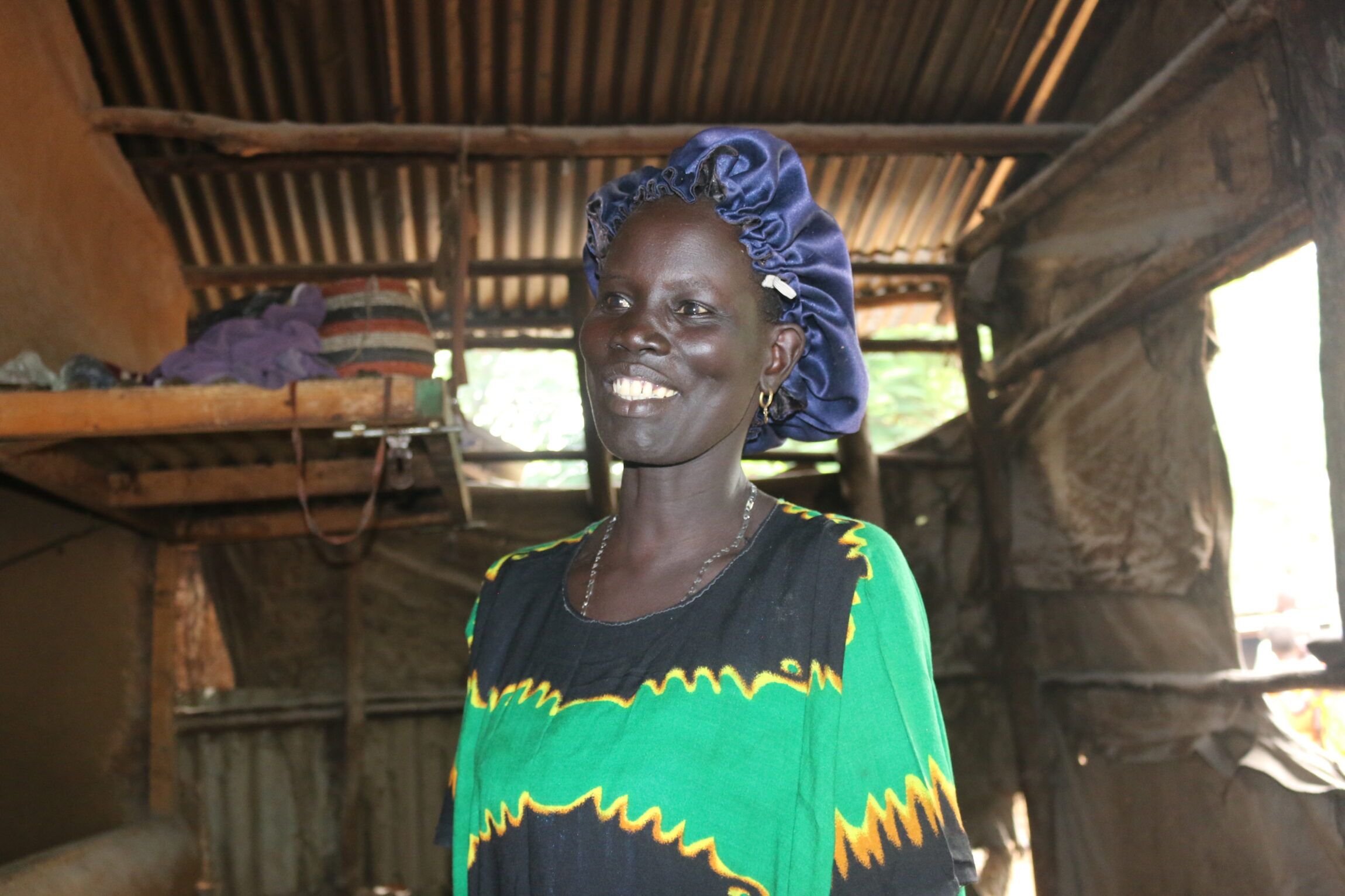
“The skills I have learned in the training and the start-up grant have been invaluable.”
– Nyanhial
Gatbel’s Tailoring Corner
Gatbel Ding Thach arrived in Ethiopia a decade ago, fleeing the conflict in his hometown in South Sudan. Back then, he worked as a civil clerk in the government but also had a passion for tailoring in his spare time.
While living in the camp, he decided to turn that passion into a small tailoring business, repairing torn clothes to support himself and his family.
When he was approached by DCA with the small business development programme, he was thrilled. “It was exactly what I needed to take my business to the next level,” Gatbel says. “I didn’t just want to fix old clothes; I wanted to create new ones, too. I even came up with a plan to buy mosquito nets, decorate them with printed garments, and sell them for a good profit.”
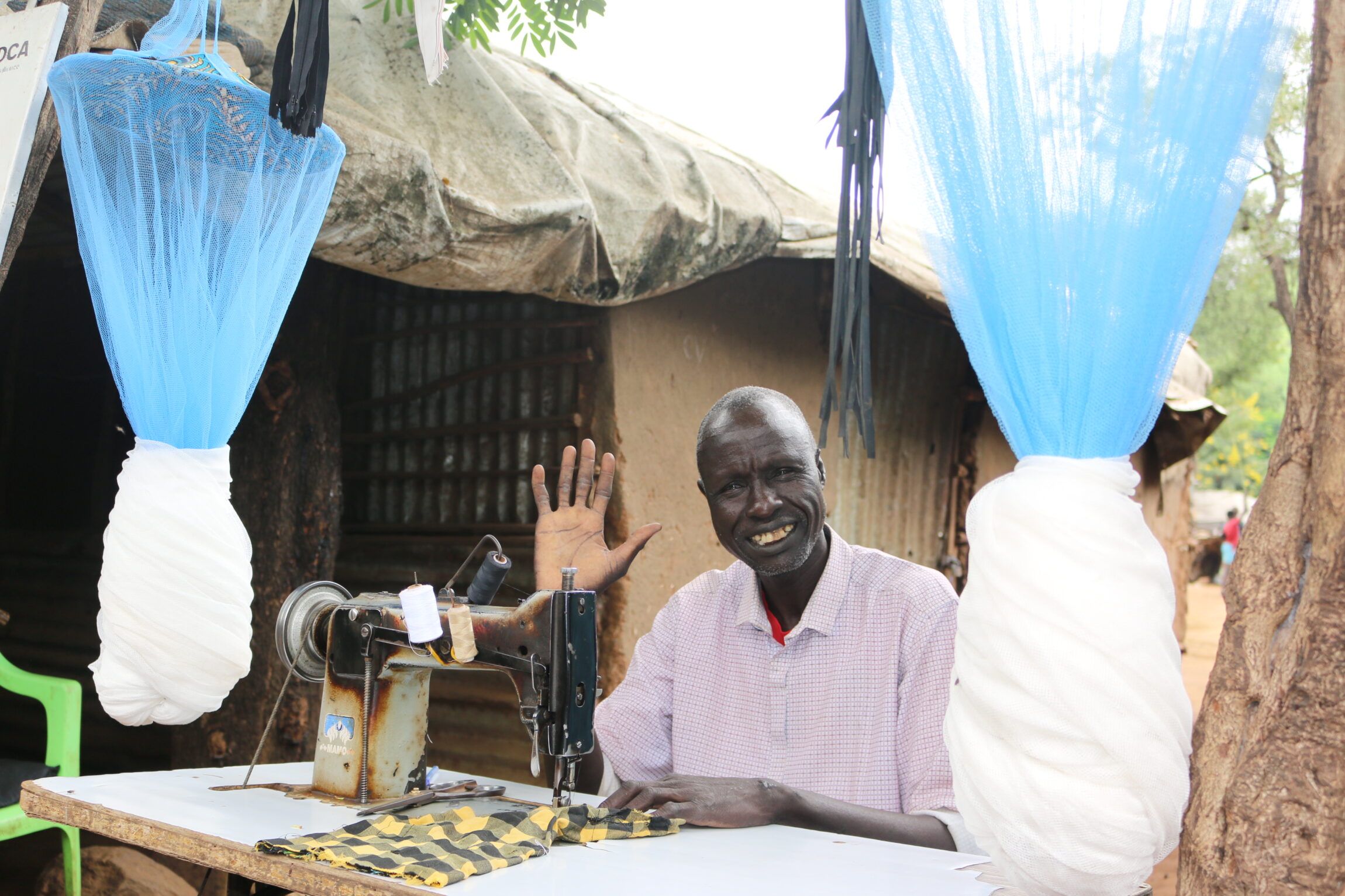
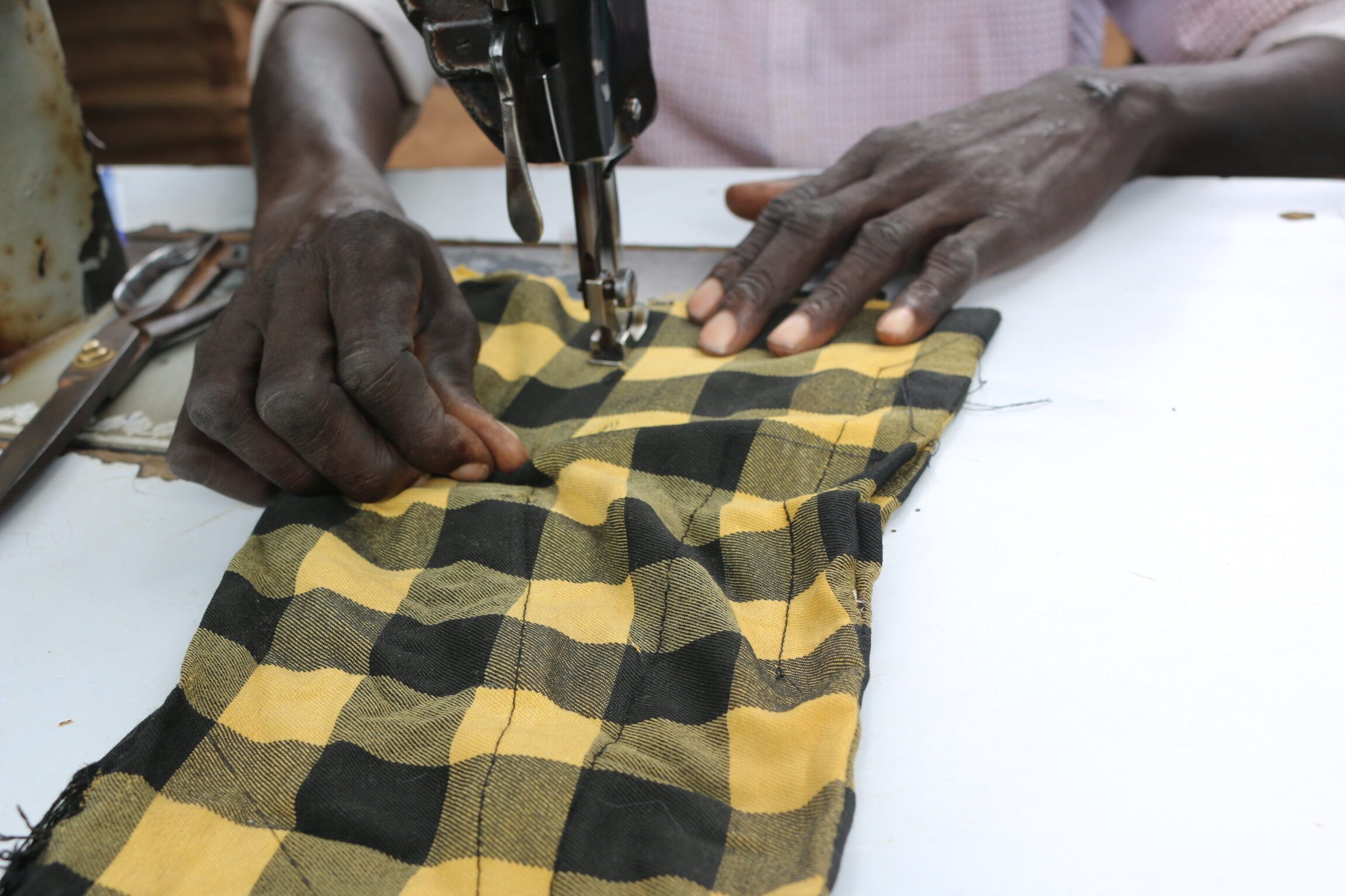
With a start-up grant Gatbel was able to put his ideas into action. Now, his business is thriving, bringing in an average net profit of about 9000 Birr (~$72) a month. He keeps a daily log of his income and expenses, which helps him manage his finances effectively.
In the future, I hope to expand my corner into a designer boutiqueGatbel
Makal’s Shop
Makal Yian Kalang, is a 50-year-old refugee from Malakar, South Sudan. Once a dedicated farmer, he cultivated sorghum and looked after his cattle. However, the outbreak of war in his village in 2014 caused him to leave everything behind and flee to protect his and his family’s lives.
While living in the camp, Makal started a small business selling tissue paper, gum, candies, and biscuits to earn some income and support his family.
In March 2024, he was selected by DCA to participate in the small business development programme. “I received a training which gave me a confidence to expand my business,” says Makal. When he received a start-up grant of 22,000 Birr, he expanded his shop, starting to sell many other commodities.
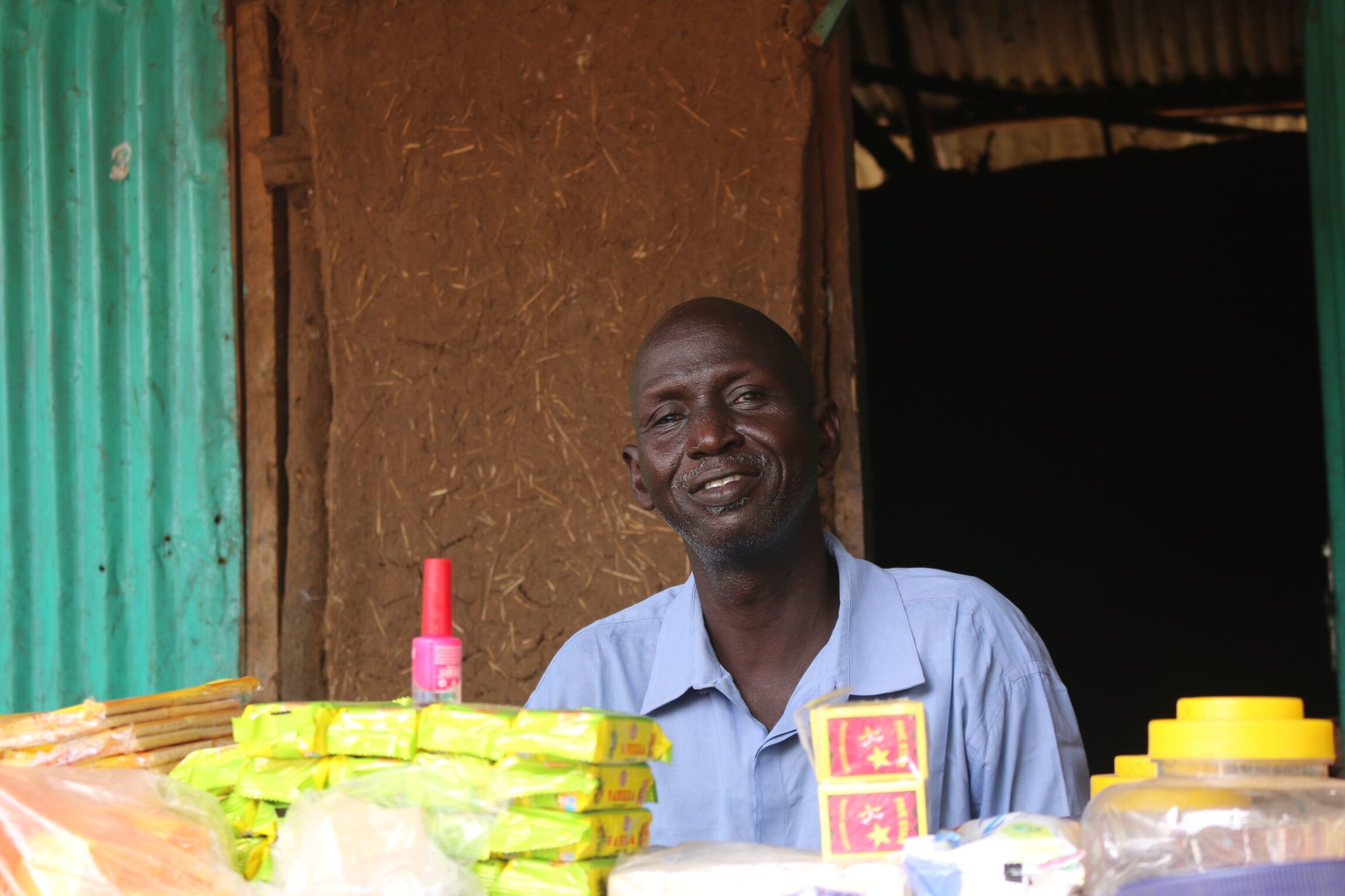
Makal sells varieties of food and non-food items at his shop.
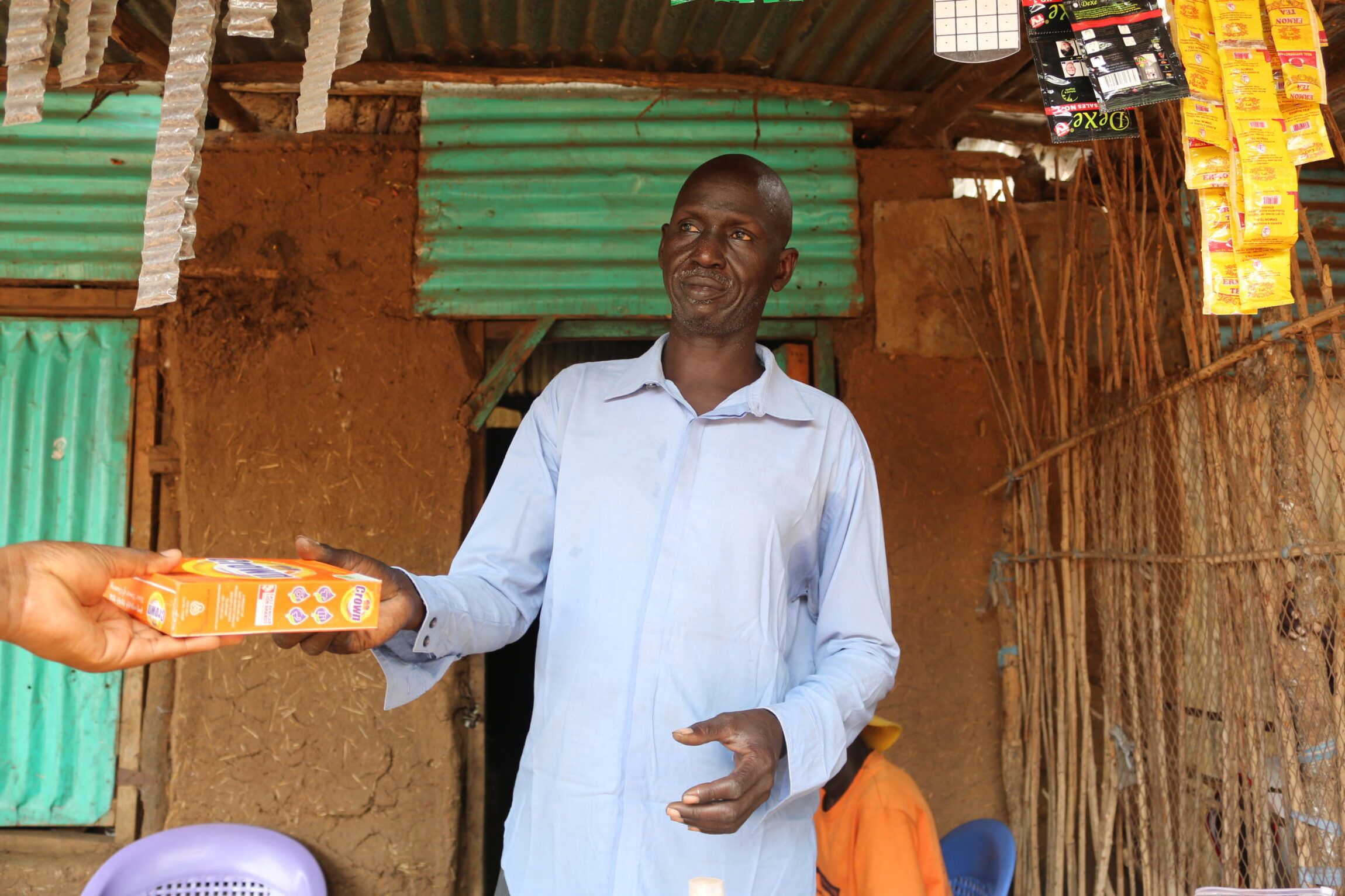
His business has now transformed into a multipurpose convenience store. He offers a wide variety of food items such as grains (like wheat, rice, maize, chickpea etc), pasta, biscuits, candies, salt, sugar, coffee beans as well as a wide range of non-food items such as soaps, match sticks, and beauty products.
My business has really taken off. I can now provide for my family and save for the futureMakal
About the Project
Nyanhial, Gatbel and Makal are all supported by the Integrated multi-sectoral humanitarian response for Eritrean refugees and IDPs in Afar Region and food security and economic empowerment for South Sudanese refugees and host communities in Gambella Region project, funded by the Bureau of Population, Refugees, and Migration (US Government).
